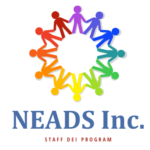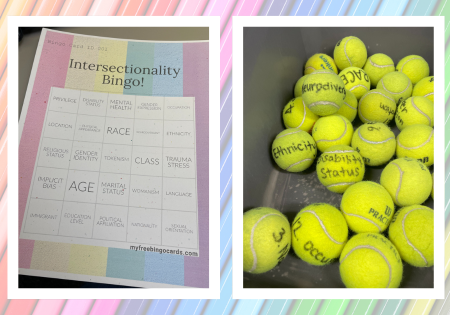Intersectionality Bingo
Intersectionality: The theory suggests and examines how biological, social and cultural categories such as gender, race, class, ability, sexual orientation, and other identities interact on multiple and often simultaneous levels, contributing to multiple forms of discrimination and systematic social inequality.
Read More60 Ways to Live Longer, Stronger and Better
Automated behaviors — making the coffee, reading the news, playing a game on a phone, checking email — account for nearly half of the average person’s daily activities, according to research by Wendy Wood, a psychology professor at the University of Southern California and author of Good Habits, Bad Habits. “We do the same thing in the same context almost every day,” she says. “And we do it without thinking about it.” Intentionally or not, you’ve spent the past year or so creating new, often unhealthy habits…
Read MoreHow to have a good work-life balance
From BetterUp.com: Feeling like all you do is work? You’re not alone. Several statistics show that more than 60 percent of U.S. employees feel like their work-life balance is out of whack. But how do you balance your work-life with so much work happening at home? And how do you balance your workload to be more efficient?
Read MoreThe impact of diet culture on employee well-being
It’s a familiar scene that can make you feel uncomfortable: You’re in your company lunchroom about to dig into a yummy salad when your coworker comes in. “You’re so good! I’m bad for having pizza and need to get back on track tomorrow,” they say, triggering a flood of thoughts.
Does this mean I’m bad because I ate pizza last night? I don’t feel comfortable talking about diets at work. How can I respond without putting them down?
Read MoreWays diet culture manifests in the workplace
Did you know that May 6 is International No Diet Day? It was first observed in 1992 when British feminist Mary Evans Young, who had struggled with body image and eating disorders her entire life, invited her friends to a picnic to “Ditch that Diet.”
Read MoreWhat Is NIMBYism and How Do Affordable Housing Developers Respond to It?
NIMBY stands for “Not in My Back Yard.” In the housing world it’s used to describe people, typically existing residents (especially homeowners), who oppose new housing development near their homes—particularly denser or more affordable housing. Many housing advocates reserve the term NIMBY for residents with substantial privilege who are seeking to preserve that privilege, and not residents opposing development for other reasons, such as fear of displacement.
Read More‘It’s cultural genocide’: inside the fight to stop a pipeline on tribal lands
The Line 3 route traverses land that Native American pipeline opponents say is protected by US treaties with Ojibwe nations
Read MoreNot Just Keystone XL: The Indigenous Fight for Environmental Justice
Indigenous groups have been the stewards of the American terrain for generations. Yet, these communities are in a constant battle not only to protect their own sacred land from ecological harm but also to advocate for a stable climate. Continue reading…
Read MoreWhat Is Environmental Racism?
This form of systemic racism disproportionately burdens communities of color.
Read MoreWhy are US cities still so segregated?
Discover the dark history of the American suburbs, and how practices like racial covenants restricted access to home ownership for people of color.
Read More
